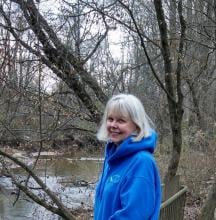The online cultural world launched in 2012 by Google has steadily expanded, and now the Google Cultural Institute and its growing list of partner organizations offer up even more artwork, interesting artifacts, and content from more than 1000 museums, archives, and organizations via website and app.
Pamela Rentz is a freelance writer and editor who has been working in marketing communications and PR for technology—from startups to Fortune 100 outfits—for more than eighteen years. She’s a regular contributor to TechWell.com and GardenTraveler.com. She’s also a Georgia Master Gardener and, when not writing, can usually be found in a garden somewhere.
All Stories by Pamela Rentz
Companies say they want to build a culture of innovation, but saying and actually doing are two different things. Those that are serious should take note of the recently released innovation blueprint developed by the ecosystem at the Pentagon’s Defense Advanced Research Projects Agency.
Always consult a doctor for medical advice. Well yes, but for many of us, that’s after we first do an Internet search for our symptoms. Google recognizes this reality and is attempting to make web-surfing symptoms more accurate, with more helpful (and appropriate) listings served up.
The 2016 hurricane season is upon us and NOAA, the U.S. National Oceanic and Atmospheric Administration, has more than tripled computing forecasting capacity thanks to two new Cray supercomputers the agency calls “Luna” and “Surge”.
Dream it. Design it. Make it. It’s the Makers’ mantra—and the official "National Week of Making" that takes place June 17–23 kicks off a summer of tinkering with 3D printers, laser cutters, open source design software, and Internet instructions and videos.
NASA's Technology Transfer Program periodically releases formerly patented technologies to the general public. NASA recently made available more than 50 additional agency technologies, and a searchable database catalogs thousands of NASA patents already in the public domain.
Linus Torvalds's concept of an open source operating system and the Linux kernel helps power the Internet and millions of Android devices. In a recent Q&A TED Talk, Torvalds discussed how he likes to work (alone), his good and bad traits, and why he doesn’t see himself as a visionary.








